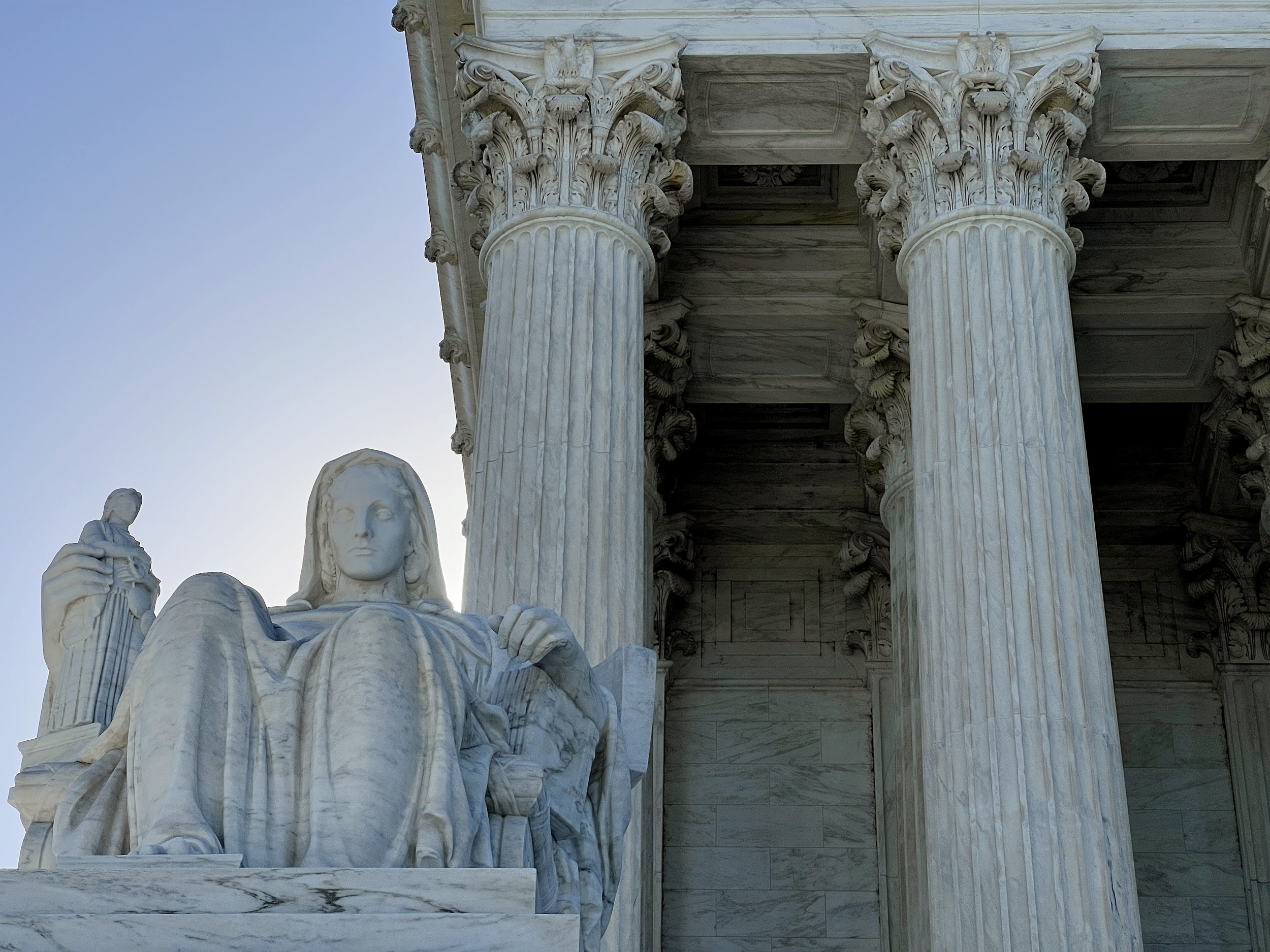Landmark Cases Related to Grants Pass Supreme Court

The Grants Pass Supreme Court has been involved in several landmark cases that have shaped American law. Two of the most significant cases are Oregon v. Elstad (1973) and Kyllo v. United States (2001).
The Grants Pass Supreme Court case is a landmark decision that has had a significant impact on environmental law. The case involved a dispute between the Environmental Protection Agency (EPA) and Chevron USA, Inc. over the cleanup of a contaminated site.
The Supreme Court ruled in favor of Chevron, holding that the EPA had overstepped its authority by interpreting the Clean Water Act too broadly. This decision has been criticized by environmentalists, who argue that it has made it more difficult to hold polluters accountable for their actions.
However, the chevron ruling has also been praised by businesses, who argue that it provides them with greater certainty and predictability in their dealings with the EPA. The Grants Pass Supreme Court case is a complex and controversial decision that has had a significant impact on environmental law.
Oregon v. Elstad
Oregon v. Elstad established the “fruit of the poisonous tree” doctrine, which prohibits the use of evidence that is obtained as a result of an illegal search or seizure. In this case, the police had obtained a warrant to search Elstad’s home for drugs. However, the warrant was later found to be invalid because it was based on an affidavit that contained false information. The Supreme Court ruled that the evidence that the police had obtained as a result of the illegal search could not be used against Elstad.
The Supreme Court’s Grants Pass decision highlighted the importance of Chevron deference, a doctrine that gives agencies broad authority to interpret the laws they enforce. Chevron deference played a key role in the landmark case Chevron vs. NRDC , where the Court ruled that agencies’ interpretations of ambiguous statutes are entitled to great weight.
This principle has been instrumental in shaping the balance of power between agencies and courts, ensuring that agencies have the necessary flexibility to carry out their responsibilities effectively.
Kyllo v. United States
Kyllo v. United States involved the use of thermal imaging technology to detect heat loss from a home, which was used to infer that the occupants were growing marijuana. The Supreme Court ruled that the use of thermal imaging technology in this case violated the Fourth Amendment’s prohibition against unreasonable searches and seizures. The Court held that the use of the technology was an “unreasonable” search because it was not one that would have been permitted under the common law at the time the Fourth Amendment was adopted.
The Role of Grants Pass Supreme Court in Shaping Criminal Law
The Grants Pass Supreme Court has played a pivotal role in shaping the landscape of criminal law in the United States. Through its landmark rulings, the court has defined the boundaries of jury selection, search and seizure, and Miranda rights, and has significantly influenced the development of plea bargaining and sentencing guidelines.
Jury Selection
The court’s decisions on jury selection have ensured that juries are representative of the community and that defendants are not denied a fair trial due to biased or unrepresentative juries. In Batson v. Kentucky (1986), the court held that prosecutors cannot strike potential jurors based on their race or gender without a race-neutral or gender-neutral reason.
Search and Seizure
The court’s rulings on search and seizure have established the Fourth Amendment’s protection against unreasonable searches and seizures. In Mapp v. Ohio (1961), the court extended the exclusionary rule to state courts, prohibiting the use of illegally obtained evidence in criminal trials. This decision significantly strengthened the Fourth Amendment’s protections against police misconduct.
Miranda Rights
The court’s decision in Miranda v. Arizona (1966) established the Miranda rights, which require law enforcement officers to inform suspects of their right to remain silent, their right to an attorney, and their right to have an attorney appointed if they cannot afford one. These rights are designed to protect suspects from self-incrimination and to ensure that they are treated fairly during police interrogations.
Plea Bargaining
The court’s rulings on plea bargaining have shaped the way that plea bargains are negotiated and enforced. In Santobello v. New York (1971), the court held that prosecutors cannot renege on plea agreements without a valid reason. This decision has helped to ensure that plea bargains are fair and that defendants are not coerced into pleading guilty.
Sentencing Guidelines
The court’s decisions on sentencing guidelines have established the framework for determining appropriate sentences for criminal offenses. In United States v. Booker (2005), the court held that federal sentencing guidelines are advisory rather than mandatory, giving judges more discretion in sentencing decisions. This decision has allowed judges to consider individual circumstances and to impose sentences that are tailored to the specific facts of each case.
Grants Pass Supreme Court and Social Justice

The Grants Pass Supreme Court has played a significant role in shaping social justice in the region. The court has been involved in several landmark cases related to civil rights, discrimination, and LGBTQ+ rights. It has also addressed issues of poverty, homelessness, and access to healthcare.
Civil Rights and Discrimination, Grants pass supreme court
The Grants Pass Supreme Court has ruled on several cases involving civil rights and discrimination. In one case, the court found that a local school district had discriminated against a student with a disability. The court ordered the school district to provide the student with a free and appropriate education. In another case, the court ruled that a city ordinance that banned panhandling was unconstitutional. The court found that the ordinance violated the First Amendment right to free speech.
LGBTQ+ Rights
The Grants Pass Supreme Court has also been involved in several cases related to LGBTQ+ rights. In one case, the court ruled that a transgender student had the right to use the bathroom that corresponded with their gender identity. In another case, the court ruled that a same-sex couple had the right to marry.
Poverty, Homelessness, and Access to Healthcare
The Grants Pass Supreme Court has also addressed issues of poverty, homelessness, and access to healthcare. In one case, the court ruled that a city ordinance that criminalized homelessness was unconstitutional. The court found that the ordinance violated the Eighth Amendment prohibition on cruel and unusual punishment. In another case, the court ruled that a state law that restricted access to abortion was unconstitutional. The court found that the law violated the Fourteenth Amendment right to privacy.
The Grants Pass Supreme Court’s rulings on social justice issues have had a significant impact on the region. The court’s decisions have helped to protect the rights of minorities, the poor, and the homeless. The court has also helped to ensure that all people have access to healthcare and other essential services.
The Grants Pass Supreme Court, renowned for its landmark rulings, is a testament to the intricate balance of justice. Its grandeur is akin to the tartan pattern , where intersecting lines create a tapestry of tradition and modernity. The court’s legacy, like the timeless appeal of tartan, endures as a symbol of order and the unwavering pursuit of fairness.
The Grants Pass Supreme Court case raised important questions about the rights of homeless individuals. The Supreme Court’s decision in this case has implications for the way that cities and towns address homelessness. It is important to consider the impact of this decision on the lives of homeless individuals and to work towards solutions that respect their rights and dignity.
The Grants Pass Supreme Court recently issued a ruling that overturned the Chevron doctrine, a long-standing precedent that gave deference to agency interpretations of ambiguous statutes. This decision has significant implications for the balance of power between the courts and administrative agencies, and is likely to have a major impact on future legal challenges to agency actions.
For more information on the overturned Chevron doctrine, please visit this link.